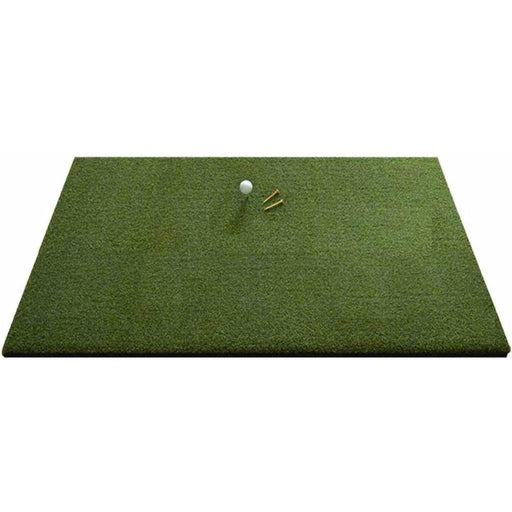
How Often Should You Play Golf to Get Better?
Golf is a sport that rewards dedication and practice. Whether you're a casual golfer or aspire to lower your handicap and improve your game, the frequency of playing golf plays a pivotal role in your progress. In this blog post, we will explore the question: "How many times a week should you play golf to get better?" We'll consider various factors to help you find the sweet spot that aligns with your goals and commitments, with a special focus on the revolutionary use of golf simulators for practice and their contribution to consistent improvement.
1. Your Skill Level and Goals
Your current skill level and goals in golf are the primary factors that dictate how often you should play. Your goals might include:
- Lowering your handicap
- Preparing for tournaments
- Simply enjoying the game
- Maintaining your skills
For Beginners and Casual Golfers: If you're new to the game or play golf primarily for leisure, playing once a week may be sufficient to maintain your skills and enjoy the game. However, consider supplementing your play with innovative golf simulator practice sessions.
For Improving Handicap and Competitive Golfers: To lower your handicap or prepare for competitive play, you should aim to play golf multiple times a week. At least three to four rounds a week may be necessary to make significant progress, and golf simulators can be a game-changer in this regard.
2. Practice vs. Playing Rounds
It's important to differentiate between playing full rounds of golf and dedicated practice sessions. Practice sessions may involve working on your swing, chipping, putting, and other aspects of your game.
Dedicated Practice: Golfers looking to improve their skills should include dedicated practice sessions into their routine. These sessions can be as frequent as two to three times a week, in addition to playing rounds, and golf simulators provide an excellent environment for such practice.
Golf Simulators: These high-tech systems offer a controlled environment for refining your skills. With golf simulators, you can practice your swing, work on your short game, and analyze your performance with precision. They allow you to experience different course conditions, practice in any weather, and receive instant feedback to refine your techniques.
3. Quality Over Quantity
The quality of your play or practice is often more crucial than sheer quantity. It's better to have a focused, effective practice session or a well-played round of golf than to play multiple times without purpose. Golf simulators enable you to hone your skills with precision and are designed to enhance the quality of your practice.
4. Balancing Rest and Recovery
Playing golf too frequently without proper rest can lead to fatigue and potential burnout. It's important to find a balance that allows your body and mind to recover and avoid overuse injuries. Golf simulators can be an excellent option when you need a break from the course while still engaging in meaningful practice.
5. Adaptability and Schedule
Your personal schedule and life commitments play a significant role in determining how often you can play golf. Balancing work, family, and other responsibilities is essential. Golf simulators offer flexibility as you can practice at your convenience without the need for traveling to a golf course.
Regularity is Key: Regularity in playing golf, even if it's once or twice a week, can contribute to improvement over time. It's better to have a consistent schedule that you can adhere to than to aim for daily practice and fall short due to schedule conflicts, and golf simulators facilitate this consistency.
6. Supplement with Off-Course Activities
When you can't play rounds of golf or practice at the course, consider off-course activities to improve your game:
- Swing drills and exercises at home
- Visits to the driving range
- Golf simulator sessions
These off-course activities, especially golf simulator sessions, can help maintain and improve your skills between your golf rounds.
Finding the Sweet Spot
The frequency with which you should play golf to get better is a highly individual matter, influenced by your goals, skill level, and life commitments. While some golfers may benefit from playing multiple times a week, others can make significant progress with fewer rounds if they incorporate dedicated practice and maintain consistency, with the invaluable addition of golf simulators to their routine.
Remember that golf is a lifelong journey, and there is no one-size-fits-all answer. It's important to find the balance that suits your goals, lifestyle, and love for the game. With the right approach and dedication, you can steadily improve your golf game, whether you play once a week or more often, and leverage the power of golf simulators to take your practice and consistency to the next level.

Have Questions About Golf Simulators?
Our expert team is here to help you find the perfect golf simulator for your needs.
Featured products
-
SkyTrak+
Original price $2,995.00 - Original price $3,145.00Original price$2,995.00 - $3,145.00$2,995.00 - $3,145.00Current price $2,995.00Introducing the SkyTrak+ Launch Monitor: Unmatched Accuracy and Advanced Features Experience a new level of precision and innovation with the SkyTr...
View full details -
ProTee Majestic Simulator Package
Original price $9,618.00 - Original price $13,848.00Original price$9,618.00 - $13,848.00$9,618.00 - $13,848.00Current price $9,618.00ProTee Majestic Golf Simulator Package: Elevate Your Indoor Golf Experience Transform your home or business into a golfer’s dream with the ProTee M...
View full details -
Eagle Golf Mat
Original price $370.00 - Original price $1,130.00Original price $370.00$370.00$370.00 - $1,130.00Current price $370.00Introducing the Eagle Golf Mat: The Ultimate Golf Experience Are you passionate about golf and demand nothing but the very best in your practice eq...
View full details -
Retractable HomeCourse® Golf ProScreen 180
Original price $2,299.00Original price $2,299.00 - Original price $2,299.00Original price $2,299.00Current price $1,999.00$1,999.00 - $1,999.00Current price $1,999.00HomeCourse® Golf ProScreen 180 HomeCourse® Golf ProScreen 180 is a retractable golf screen and enclosure. HomeCourse® Golf ProScreen 180's ballisti...
View full details -
The Augusta V2 4'x12' 2 Cups
Original price $399.00Original price $399.00 - Original price $399.00Original price $399.00Current price $329.00$329.00 - $329.00Current price $329.00The Augusta is one of Big Moss’ traditional models. It offers unmatched versatility for teaching and year round practice. Make a long-term investme...
View full details





